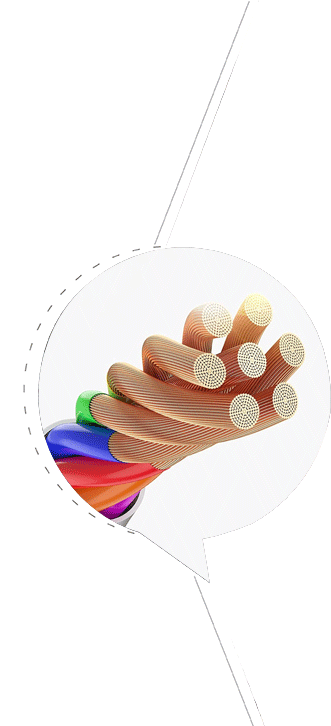The key role of T-CCA wire in modern industry: from manufacturing to maintenance
T-CCA (copper clad aluminum) wire plays an important role in modern industry, and its unique properties make it widely used in many fields. The following are the key roles of T-CCA wire from manufacturing to maintenance:
1. Key role in manufacturing
Cost-effectiveness: T-CCA wire combines the conductivity of copper and the lightweight characteristics of aluminum, with a lower cost than pure copper wire, suitable for large-scale production.
Lightweight design: The aluminum core makes T-CCA wire light in weight, easy to transport and install, especially suitable for industries that need to reduce weight, such as automotive and aerospace.
Conductive properties: The copper outer layer provides good conductivity, suitable for power transmission and electronic equipment.
Mechanical properties: T-CCA wire has high tensile strength and flexibility, suitable for complex wiring environments.
2. Application areas
Power transmission: used for medium and low voltage power transmission, low cost and good conductivity.
Communication industry: used to manufacture communication cables, such as network cables and telephone cables, with excellent signal transmission performance.
Automotive industry: used in automotive wiring harnesses, reducing weight and maintaining conductivity.
Home appliances: widely used in internal wiring, balancing cost and performance.
3. Key role in maintenance
Corrosion resistance: The copper outer layer provides good corrosion resistance, prolongs service life and reduces maintenance needs.
Easy to install and maintain: Lightweight and flexibility make it easy to install and maintain, reducing labor costs.
Reliability: It can still maintain stable performance in harsh environments and reduce failure rates.
Environmental protection: The use of aluminum reduces dependence on copper resources and meets environmental protection requirements.
4. Future development trends
Technological innovation: With technological progress, the performance of T-CCA wire will be further improved.
Application expansion: The application in emerging fields such as new energy and smart grids will increase.
Standardization and normalization: The improvement of industry standards will promote its wider application.

 EN
EN  English
English Español
Español عربى
عربى

























